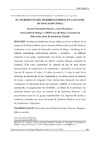Identificador persistente para citar o vincular este elemento:
https://accedacris.ulpgc.es/jspui/handle/10553/12063
| Campo DC | Valor | idioma |
|---|---|---|
| dc.contributor.author | Hernández-Mendo, Antonio | es |
| dc.contributor.author | Planchuelo Medina, Lina | es |
| dc.date.accessioned | 2014-07-25T02:30:19Z | - |
| dc.date.accessioned | 2018-03-15T14:35:03Z | - |
| dc.date.available | 2014-07-25T02:30:19Z | - |
| dc.date.available | 2018-03-15T14:35:03Z | - |
| dc.date.issued | 2014 | es |
| dc.identifier.issn | 1886-8576 | - |
| dc.identifier.uri | https://accedacris.ulpgc.es/handle/10553/12063 | - |
| dc.description.abstract | El objetivo fundamental de este trabajo es evaluar la eficacia de un programa de Educación Física para el fomento del desarrollo moral. El trabajo se fundamenta en las teorías del desarrollo evolutivo de Piaget y Kholberg. Se ha utilizado metodología observacional, selectiva y cualitativa. La didáctica empleada en los grupos experimentales está basada en estrategias propias del desarrollo estructural, (discusión de dilemas morales, diálogos, búsqueda de acuerdos). Cada curso experimental ha utilizado un tipo de tarea distinta (psicomotrices, de cooperación o de cooperación–oposición). esultados indican que existe un aumento de las Conductas Positivas y del razonamiento moral en los grupos experimentales. Las hipótesis de partida se confirman existiendo una mayor frecuencia de Conductas Positivas en el curso de Cooperación–Oposición. | es |
| dc.description.abstract | The objective of this work is to evaluate the effectiveness of a physical education program to promote moral development. The work is based on evolutionary development theories of Piaget and Kohlberg. We used observational methodology and qualitative selective. The teaching used in the experimental groups is based on developmentally appropriate strategies structural (moral dilemma discussion, dialogue, seeking agreement). Each experimental course has used a different task type (psychomotor, cooperation or cooperation-opposition).The results indicate that there is an increase of Positive Behavior and moral reasoning in the experimental groups. The hypothesis is confirmed and there is a higher frequency of Positive Behavior during Cooperation-Opposition. | - |
| dc.format | application/pdf | es |
| dc.language | spa | es |
| dc.relation.ispartof | Revista Iberoamericana de Psicologia del Ejercicio y el Deporte | - |
| dc.source | Revista Iberoamericana de Psicología del Ejercicio y el Deporte. Sevilla : Wanceulen, 2006- .-- ISSN 1886-8576. año 2014, vol. 9, n. 2 | es |
| dc.subject | 61 Psicología | es |
| dc.title | El incremento del desarrollo moral en las clases de educación física. | es |
| dc.type | info:eu-repo/semantics/article | es |
| dc.type | Article | es |
| dc.compliance.driver | 1 | es |
| dc.identifier.absysnet | 537108 | es |
| dc.identifier.crisid | -;- | - |
| dc.investigacion | Artes y Humanidades | es |
| dc.rights.accessrights | info:eu-repo/semantics/openAccess | es |
| dc.type2 | Artículo | es |
| dc.identifier.ulpgc | Sí | es |
| dc.description.sjr | 0,367 | |
| dc.description.sjrq | Q3 | |
| dc.description.sellofecyt | Sello FECYT | |
| dc.description.esci | ESCI | |
| dc.description.dialnetimpact | 0,0 | |
| dc.description.dialnetq | Q1 | |
| dc.description.erihplus | ERIH PLUS | |
| item.fulltext | Con texto completo | - |
| item.grantfulltext | open | - |
| Colección: | Rev. Iberoam. psicol. ejerc. deporte. 2014. v.9, n.2 Artículos | |
Visitas 10
64
actualizado el 11-ene-2026
Descargas
73
actualizado el 11-ene-2026
Google ScholarTM
Verifica
Comparte
Exporta metadatos
Los elementos en ULPGC accedaCRIS están protegidos por derechos de autor con todos los derechos reservados, a menos que se indique lo contrario.
